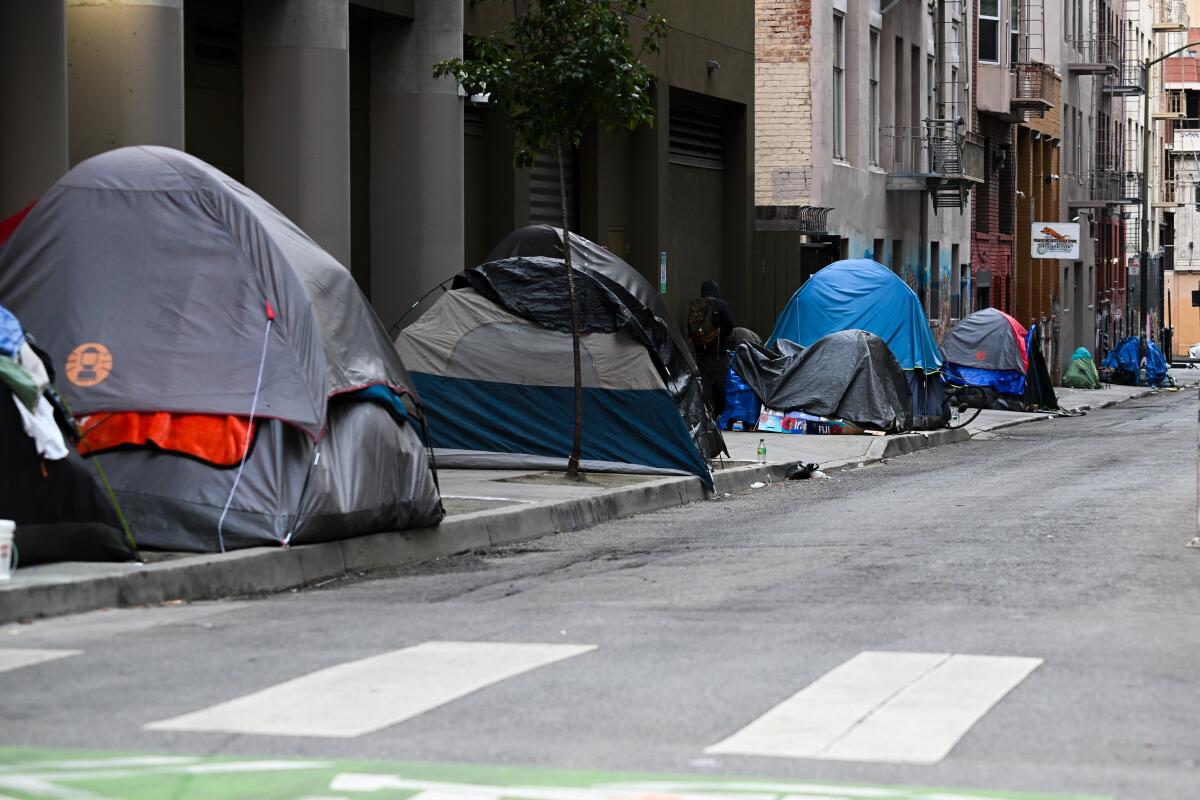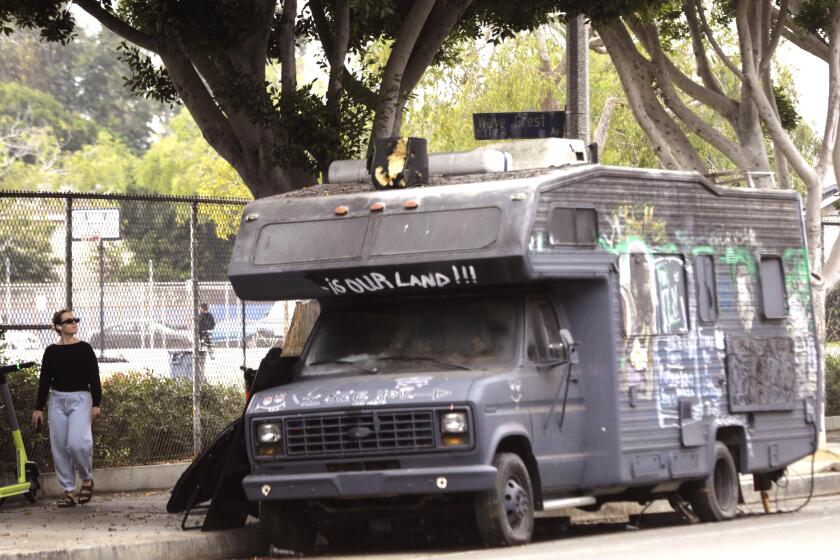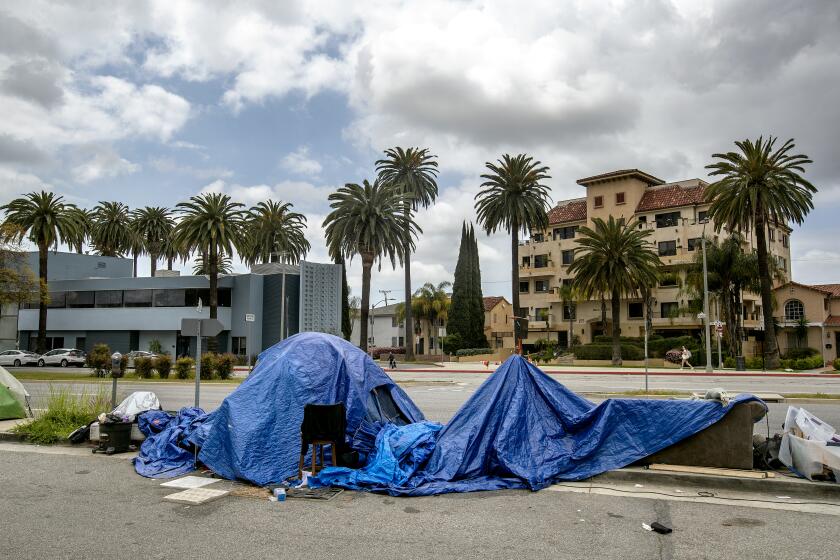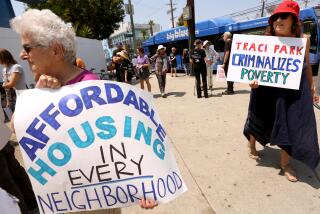Column: The first step to solving homelessness will be an attitude adjustment

- Share via
How does a society hellbent on punishing those it perceives as undeserving embrace legislation that just gives the “undeserving” money?
That is the natural follow-up question to the findings of a recent study that found giving homeless people $750 a month with no strings attached greatly improves their quality of life. More than 70% of the money went to food, housing and transportation. Research found just 2% was spent on drugs, alcohol and cigarettes.
Opinion Columnist
LZ Granderson
LZ Granderson writes about culture, politics, sports and navigating life in America.
How should we act on those findings? Can they overcome the narrative about homelessness that conditions us to assume the worst? And by “worst,” I mean assuming most of the money would be spent on hard drugs and alcohol.
We assume the worst because vilifying the undeserving helps us avoid eye contact with those in need as we walk down the street. There are some 115,000 homeless people in California alone. And the signs of that epidemic are impossible to ignore — trash, tents, human excrement. The sense of hopelessness that washes over you because the scope of the problem can be overwhelming.
Some of us get through the day avoiding reminders that the homeless are still people. Some make sense of the homelessness epidemic by telling themselves that it’s a bad thing happening to people who make bad choices. The American people have to move past both the avoidance and the delusion to reach real solutions.
A majority of unhoused people in Los Angeles County live in cars, trucks or RVs. Some of them have income, just not enough to afford both rent and food.
In the wealthiest country on Earth, too many still view poverty as an indictment of character, not a reflection of the socioeconomic imbalance American capitalism encourages. Imagining that we live in a land of opportunity, we view unhoused people as lazy — when in reality 62% of Americans live paycheck to paycheck and could easily find ourselves in a similar situation.
More than 10% of fast-food workers in the state are homeless — a combination of low wages and sporadic hours. In the conversations I’ve had with homeless people over the years — from New York to Chicago to the regulars who congregate near the Boardwalk Café in Venice Beach — work ethic and addiction are not the only factors at play. Sometimes people get blindsided by life and through a series of unfortunate events are left with no place to go. Affordable housing is sparse. Wages haven’t kept up with inflation in decades. And $750 a month could go a long way to help someone feel human again.
But if it came to a vote, would lawmakers dare to support expanding that experiment to cover more than 100,000 people? Would taxpayers revolt against the government for giving our hard-earned money away? The answer is in front of us, after decades of resistance to “welfare queens” and constant grousing from voters who despise seeing tax dollars go to food stamps. Or even forgiving student loan debt.
Jermaine, Jason and John all landed on the streets when they were squeezed between high housing costs and low incomes. What could have kept them in their homes?
The study’s finding is good information to have. But ultimately it doesn’t really matter how well universal income is proven to uplift homeless people, because it’s tough to get the necessary buy-in for government spending if it’s viewed as a handout.
Two years ago an experiment in San Francisco found $500 a month made a significant difference in people’s lives. Would you be willing to support that? Is there any cash amount that would be OK if it solves the growing problem? If not, we seem doomed to continue with vilifying the “undeserving” instead of seeking solutions, pretending we don’t see the encampments under the bridges, the shopping carts on the sidewalk, the person on the corner asking for help as we sit in the car waiting for the light to turn green.
Avoiding the problem is a choice. Mischaracterizing the problem is a worse choice. Maybe there will be some critical mass of evidence that will in time lead us to different decisions. There’s another choice waiting for us when we’re ready to make it: Rather than assigning blame to help us sleep at night, we should extend grace to help everyone sleep at night.
More to Read
A cure for the common opinion
Get thought-provoking perspectives with our weekly newsletter.
You may occasionally receive promotional content from the Los Angeles Times.














